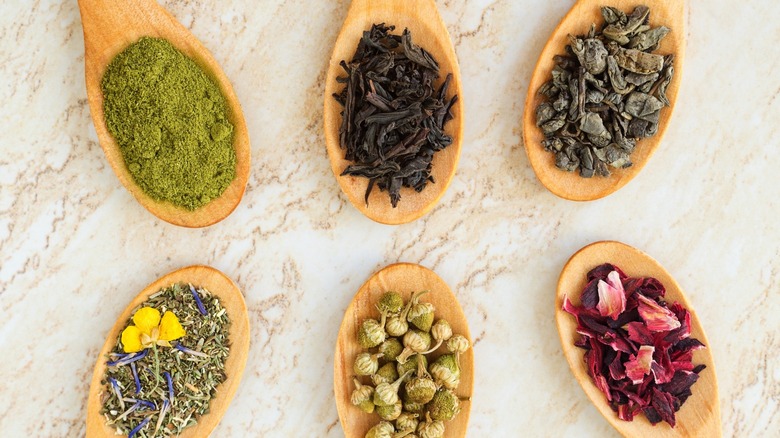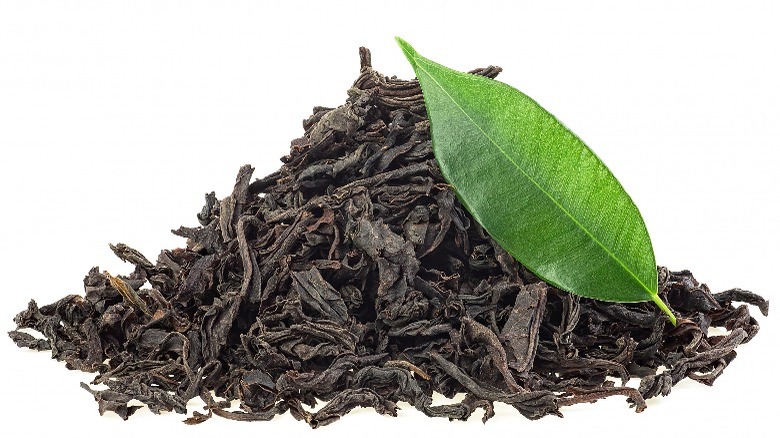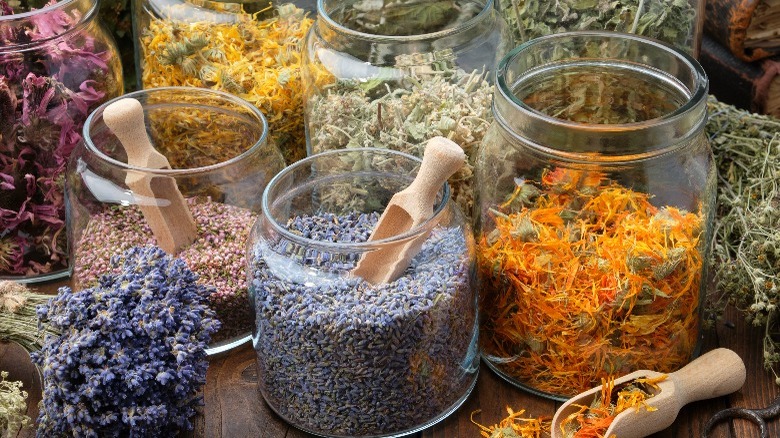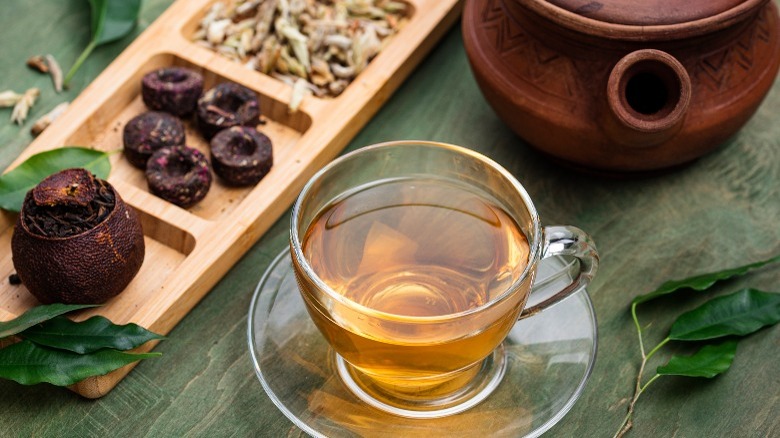Which Type Of Tea Stays Fresh The Longest?
After a long winter of tea drinking, you know what's probably in need of a spring cleaning? Your tea cupboard. Not only do the types and flavors of teas need to be exchanged for more zingy iced spring and summer counterparts like sunny peach and tart hibiscus, but you may find yourself wondering which teas are past their prime in terms of flavor and freshness. So, how do you decide what to toss and what to keep?
Assuming that it's been stored correctly, dried tea will stay fresh as long as a couple of years. Although tea does lose some of its flavor and nutrients over time, it doesn't really expire — at least, not in the sense that you will get sick from it But some types of tea, either by their nature or how they are processed, will retain their freshness longer than others.
Whether you're a loose-leaf tea connoisseur or just like keeping your tea shelf well stocked for when the mood strikes you, knowing which type of tea stays fresh the longest is useful knowledge for all tea drinkers to be steeped in. Not only will it help you get the most out of your tea collection, but it can also aid you in the weeding-out process when facing an overcrowded tea shelf and a small wall of boxed teas or loose-leaf-filled canisters.
Black tea, green tea, and oxidation
All leaf teas come from the same plant: an evergreen shrub called Camellia sinensis. Once the leaves are harvested, it's the oxidation process (or exposure to the open air) that determines whether they will be a black, green, or white tea. This continues through each step of the process as the enzymes are exposed, darkening in color and deepening in flavor until oxidation is halted through heating.
Oxidation also determines the longevity of a particular tea — the more oxidized, the longer a tea will stay at peak freshness. This is because the process of oxidation stabilizes the tea's composition, making it less susceptible to degradation. Black tea, being the most oxidized, is the longest-lasting (aside from its fermented cousin, pu'er tea). On the other end of the spectrum are the lighter teas. Their relative lack of color is a giveaway that they haven't undergone much oxidation. And it's for this reason that they are fresh for the shortest amount of time; though in a strange fluke, yellow and white tea has a longer shelf life than green.
What about herbal tea?
By some definitions, herbal tea is not even considered a proper tea, but that hasn't stopped folks from brewing it up for centuries. Made up of herbs, flowers, and dried fruits, herbal tea can last about 1 to 2 years before starting to degrade. Boxes are often stamped with a date, but this is a "best by" date, not an expiration date.
However, because herbal teas may contain ingredients that are prone to absorb moisture, such as dried fruit, they are far more susceptible to mold growth than regular tea. For this reason, storing them properly is crucial to their longevity as well as your safety. If you're a little unsure about that passionfruit hibiscus tea you found in the back of the cupboard, just be sure to examine it for mold first. As a rule of thumb for any type of tea, always trust your senses. If the tea tastes off or flavorless it's probably time to throw it away.
Pu'er: Fermented tea
Pu'er tea is in a class of its own, differing from all other varieties of tea in that it is made from much larger and older leaves grown in the Yunnan province of China. What makes this tea unique is that these rarefied leaves undergo a fermentation process, similar to beer, yogurt, and sauerkraut.
Often conflated with but distinct from oxidation, fermentation involves aging the tea through microbial breakdown over an extended period of time, not unlike cultivating a fine wine. This is achieved by first steaming pu'er and then storing it in a compacted cake-like disc to age. Pu'er is a rule breaker in that it actually requires moisture during storage for the chemical reactions to take place, resulting in its depth of flavor. According to Art of Tea, some pu'ers maintain their peak freshness for as long as fifty years.
So, does that make pu'er the winner over black tea? I guess you'll just have to do a taste test to find out. But first, you better finish cleaning out that tea cupboard.



